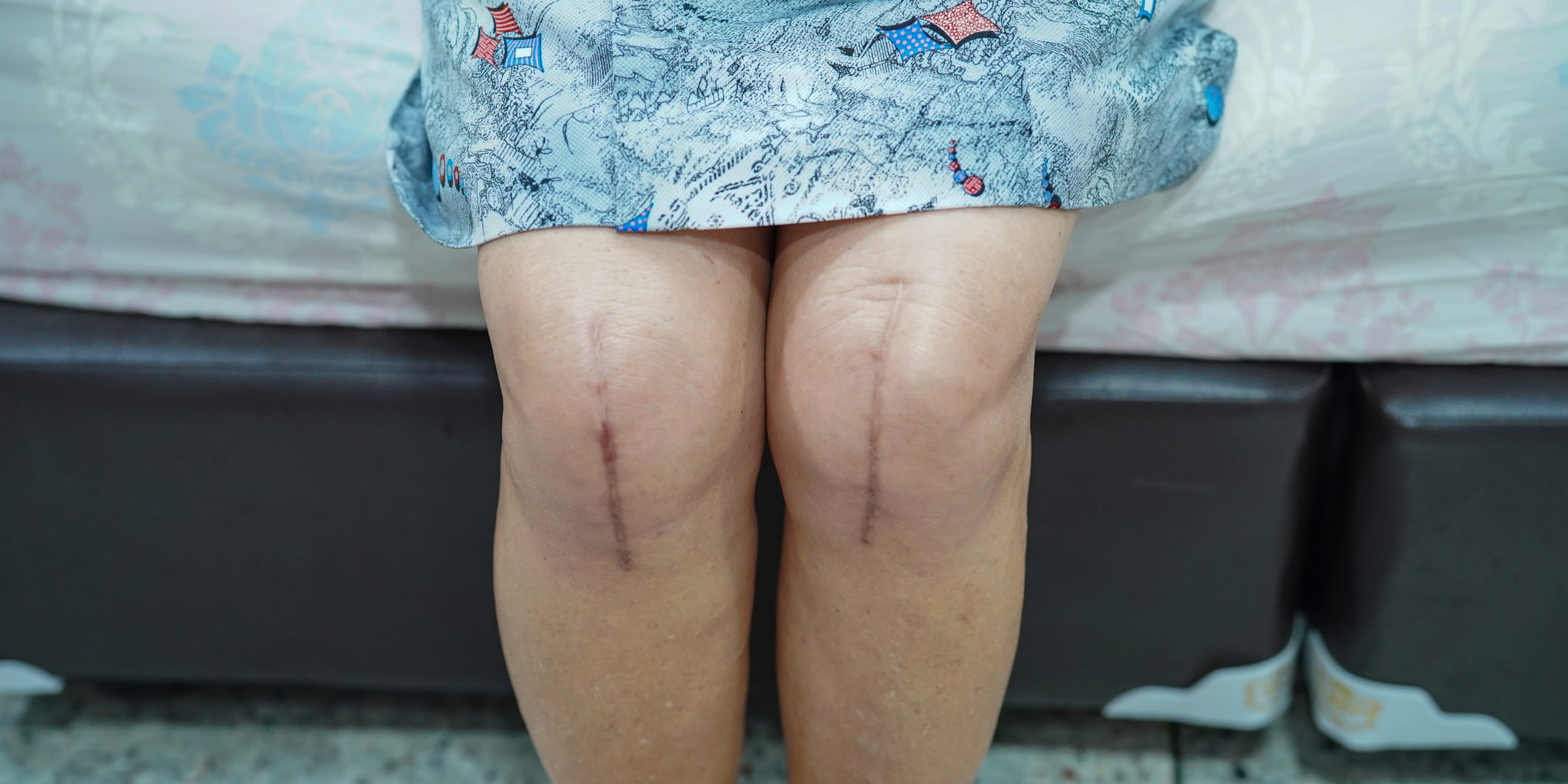A study adds to the evidence against arthroscopic surgeries for meniscal tears in OA
Surgery for meniscal tears in osteoarthritis patients appears to increase the likelihood of needing a total knee replacement, according to a five-year study.
The Meniscal Tear in Osteoarthritis Research (MeTeOR) trial, led by Dr Jeffrey Katz of Harvard University, randomised around 350 patients with knee OA to receive either physiotherapy or arthroscopic partial meniscectomy.
After five years, the patients who were initially assigned to receive surgery were twice as likely to need a knee replacement than the non-surgery group, though this did not reach statistical significance, probably because the numbers were small.
However, some patients from the physiotherapy arm crossed over into the surgery arm. When the researchers performed a secondary ‘as-treated’ analysis, they found a five-fold higher rate of knee replacement in the surgery group.
Subjective pain scores improved in both the operative and non-operative groups.
“We found that participants in the MeTeOR Trial experienced considerable pain relief in the first year, which was maintained over five years,” the authors said.
Melbourne rheumatologist and Monash University professor Rachelle Buchbinder said the results were consistent with previous placebo-controlled studies showing the lack of benefit of arthroscopic knee surgery.
But she said the study had limitations and was cautious in its conclusions.
Professor Buchbinder helped develop the Australian Clinical Care Standard for knee osteoarthritis, the RACGP OA guidelines and a BMJ rapid recommendation, and co-authored a systematic review of knee osteoarthritis interventions published in BMJ Open last year that concluded arthroscopic surgery had no important benefits.
“My take on the evidence is that arthroscopic surgery, whether debridement of the lining or of the meniscal tear, provides no important benefit over placebo surgery,” she told Rheumatology Republic.
“What this paper really adds is that having the surgery itself might increase your risk of needing a joint replacement. This is consistent with the evidence from other [observational] studies that follow people longer-term that having an arthroscope might hasten the need for joint replacement, particularly in older people.”
The MeTeOR researchers have published several previous papers about the same cohort, including one this year in which MRIs showed more cumulative damage in cartilage surface area, osteophytes and effusion-synovitis in the surgery group; and one in 2013, in which the surgery group showed no greater functional improvement than the physiotherapy group.
While the most recent paper found that surgery resulted in pain relief, Professor Buchbinder said non-blinded studies using subjective endpoints such as pain tended to overstate a treatment’s benefits by up to 25%.
The researchers offered two possible explanations for the higher knee replacement rate in the surgery group, saying it might be due to the crossovers having “severe symptoms at baseline” and failing to improve with physiotherapy (though they also say they adjusted for radiographic severity at baseline); or that patients who had had one procedure (meniscectomy) were comfortable with surgery and therefore more likely to elect to have another (knee replacement).
Citing a previous study led by Dr Katz, they authors write that arthroscopic partial meniscectomy “appears to be effective in those who do not respond to initial [physiotherapy]”.
Professor Buchbinder said this statement showed the researchers had not considered the totality of the evidence.
“They haven’t taken into account the placebo-controlled trials that show it actually doesn’t provide any additional benefit over placebo,” she told The Medical Republic.
“Now they’ve found a possible increased risk of having a joint replacement.”
Professor Buchbinder said the treatment for traumatic meniscal tears in young people used to be to remove the meniscus completely, which resulted in bad premature arthritis.
“So we already know that the more of the meniscus you remove the greater the risk that you get arthritis, and this data is really consistent with that: that it’s not good to change the biomechanics in your knee by removing these cartilages that sit between the bones … that mechanical change is one known risk factor for developing osteoarthritis,” she said.
She said surgeons were still performing too many arthroscopies: even though they had accepted that they were no longer warranted for osteoarthritis alone, many still believed they were indicated for symptoms presumed to be due to degenerative meniscal tears.
An estimated 66,000 procedures were performed in Australia in 2017.
“Since 2013 the rates of arthroscopy have been coming down in Australia,” Professor Buchbinder said. “These five-year data add to the evidence that they may be doing more harm than good.”


